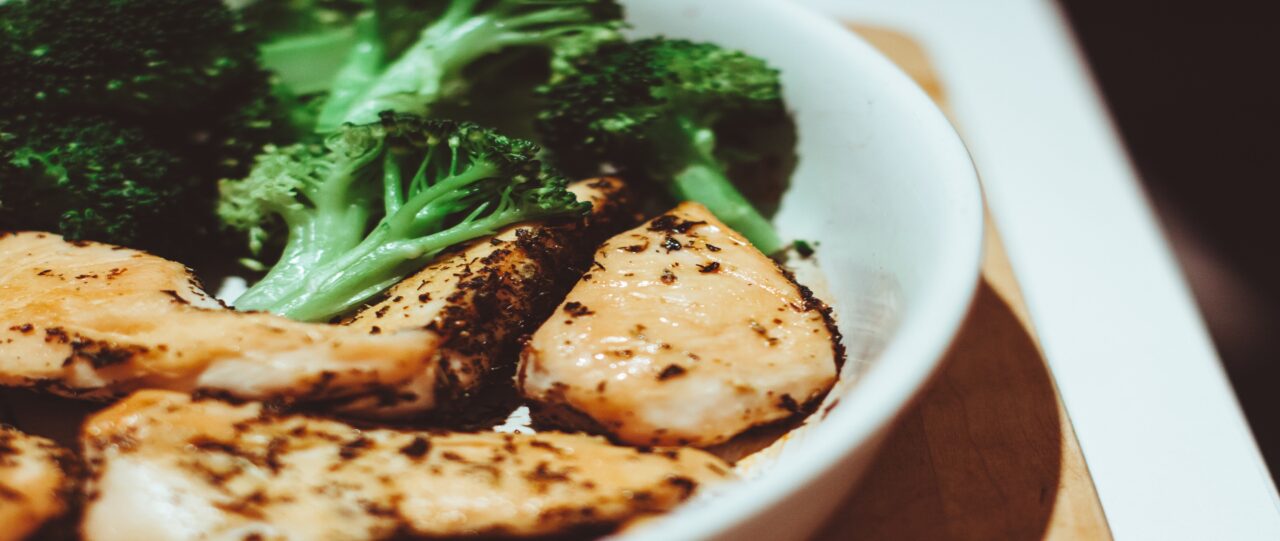What Does 200g of Protein Look Like?
200g of Protein
How many times have you heard that you’re not eating enough protein?
How frustrating has it been for you to hit the protein mark suggested to you by your weight loss professional?
It seems like one of the problems with hitting daily protein intake numbers is that you don’t know what that amount of protein looks like.
In many weightlifting circles, 200 grams of protein seems to be a magic number. It’s uncertain exactly where that number came from, however, if you’re not used to eating that much protein a day it can be a difficult task.
According to many publications, including this one, optimum protein intake seems to be 0.8-0.83g of protein per kg of body weight per day (g/kg/d). There are 0.454 kg per pound. So if you weigh 175 pounds (79 kg), you’re optimum protein intake seems to be 63-66 g per day.
In this short blog post, we will use 200 grams of protein as our focus because it seems to be a popular and heavily sought after amount. After reading this blog post you will have an understanding of what it looks like to hit protein marks like this. Additionally, you will be better equipped to know what to expect when attempting to consistently consume this amount of protein on a daily basis.
What does 50 grams of protein look like?
Let’s take this in bite sizes portions, shall we? (Pun intended).
Have you noticed those little quart-sized containers of egg whites?
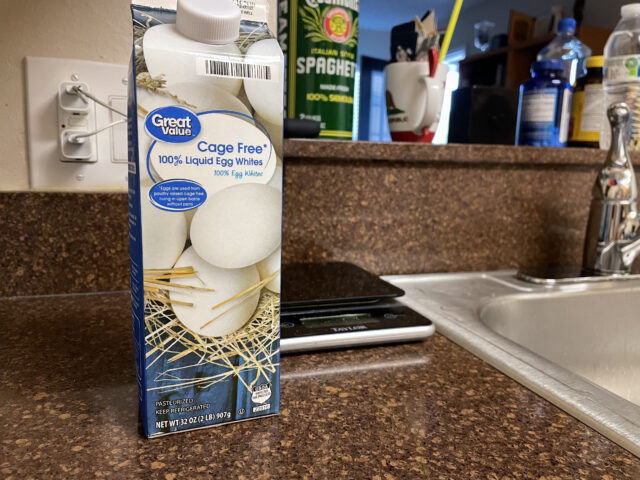
About half of one of those containers (one pint) is about 450g of egg whites. 450g grams of egg whites equals about 50g of protein.
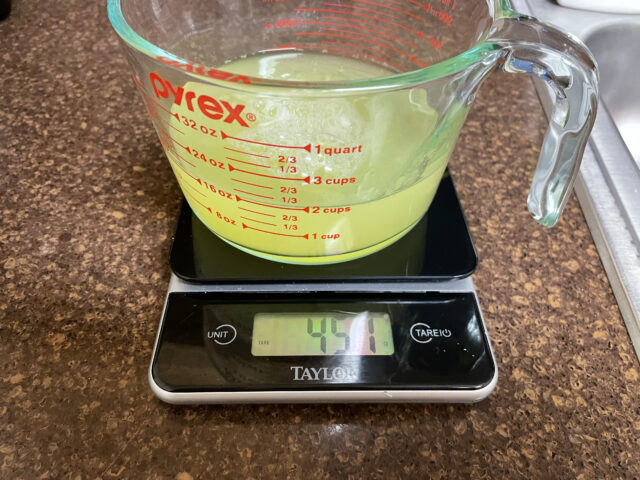
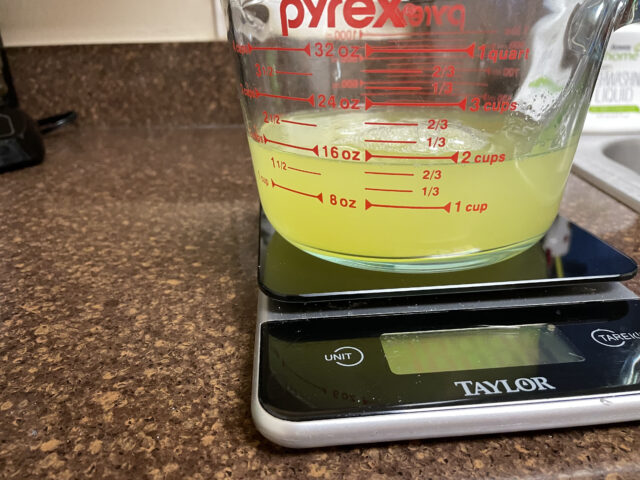
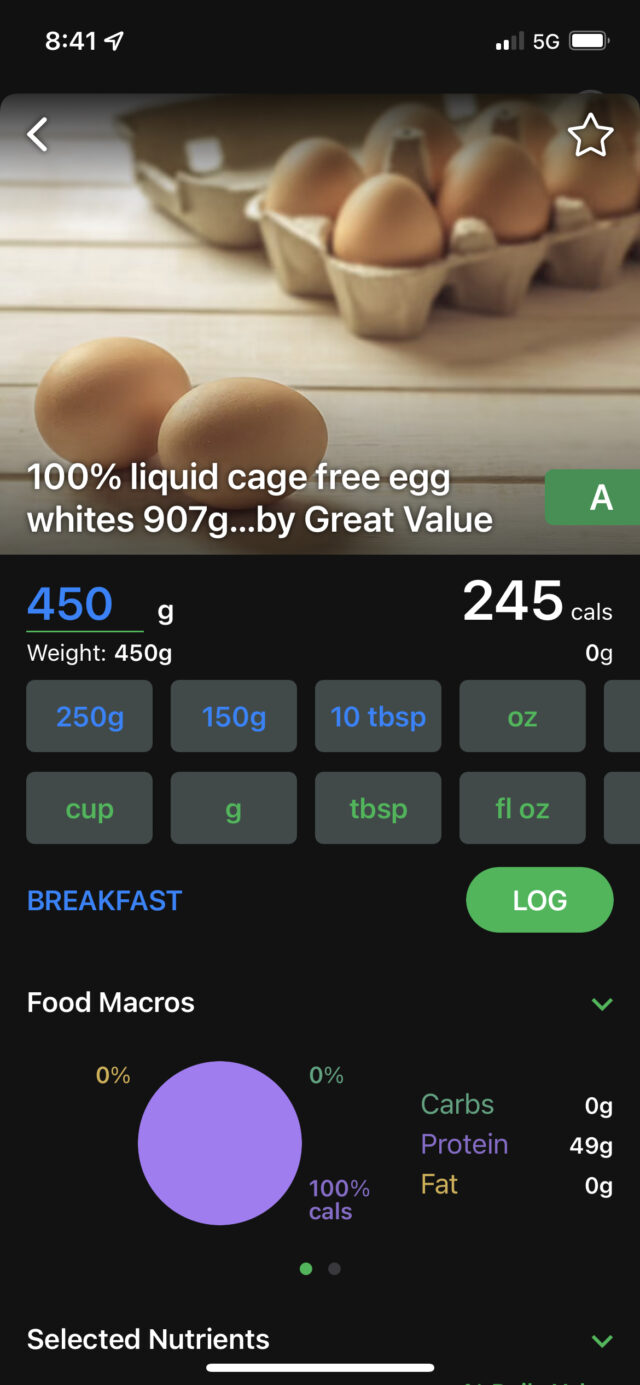
There’s a question out there on the inter-webs that asks “110g of egg white equals how many eggs?”
One large whole egg contains approximately 30g of egg white and 18g of yolk if you separate them and weigh them on a food scale.
Therefore 110g of egg whites is a little under four large whole eggs.
What does 100g of protein look like?
Moving right along to what 100g of protein looks like, you are starting to visually put together what is means to get 200 grams of protein a day.
*Side note: there are factors other than protein to consider when considering what to eat throughout your weight loss program. Suggestions for food combinations that can help with your weight loss goal can be found here. Additionally, to better understand macronutrients, go here.
In order to achieve the 100g protein mark, there are many combinations of foods you can use. Let’s say that one meal of your day consisted of the 50g from the egg whites above.
For the second 50g of protein, chicken breast will be used as the example. Additionally, this section will be broken down further for various weights of chicken breast because chicken seems to be a popular protein source for many who are trying to experience weight loss.
Before moving on, it’s important to note that any protein source(s) may be used for your weight loss program. You can go the rest of your life without ever taking a bite of chicken again and still hit your weight loss goals.
50g of protein from chicken breast
Approximately 160g of cooked chicken breast comes to 50g of protein.
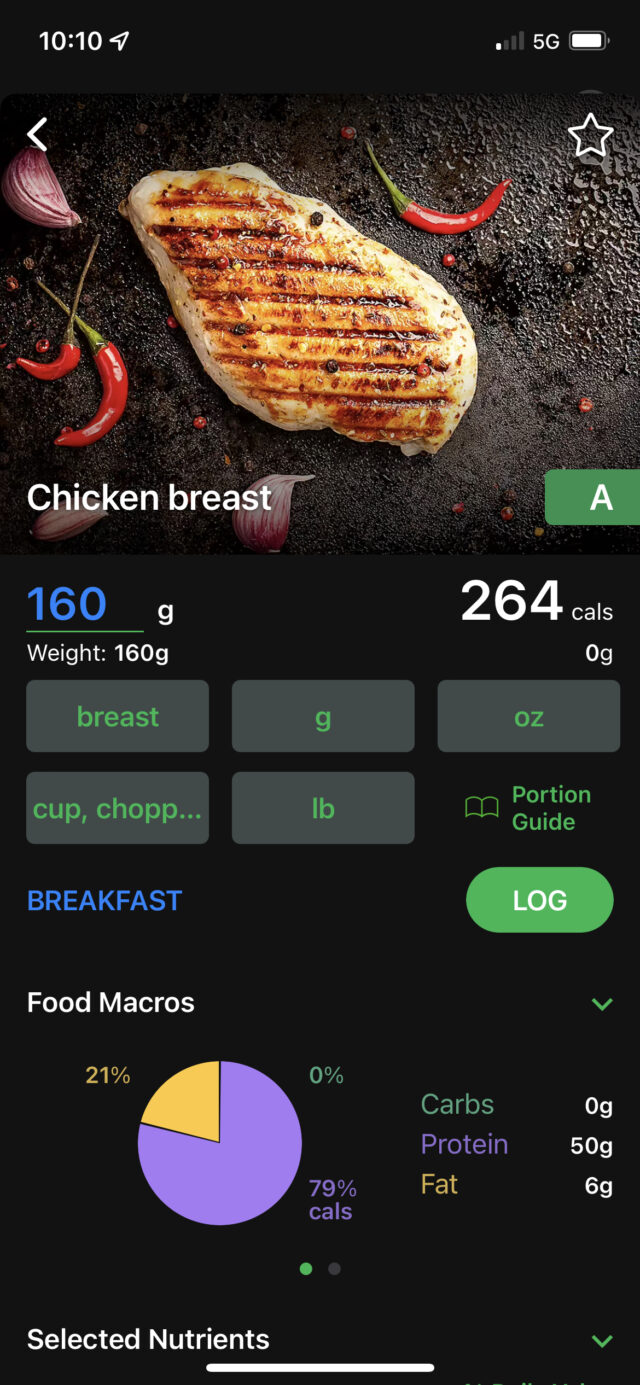
For a visual representation of what 160g of cooked chicken breast looks like, see the picture below.
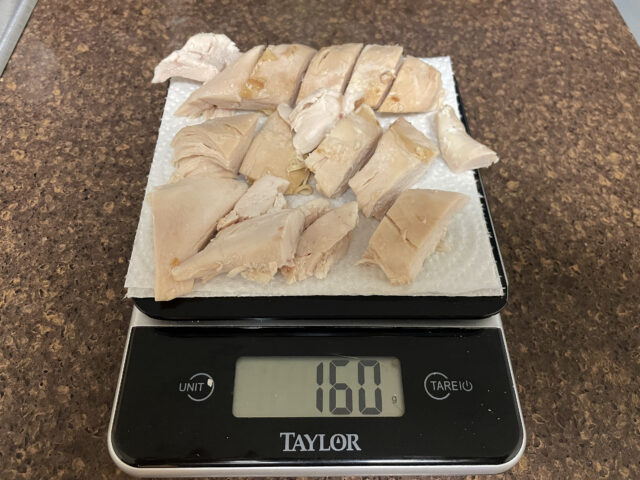
200 grams chicken breast protein / 200 grams chicken breast calories
You are now going to see how an extra 40g of chicken breast increases calorie and protein content.
You can always increase the amount of protein sources you’re already eating to hit your protein number. You may have a difficult time reaching your prescribed daily protein mark because you seem to think that you need various sources of protein throughout the day.
This is an incorrect assumption.
If it’s convenient for you, feel free to simply eat more of what you’re used to as long as you can find a balance with your other macronutrients.
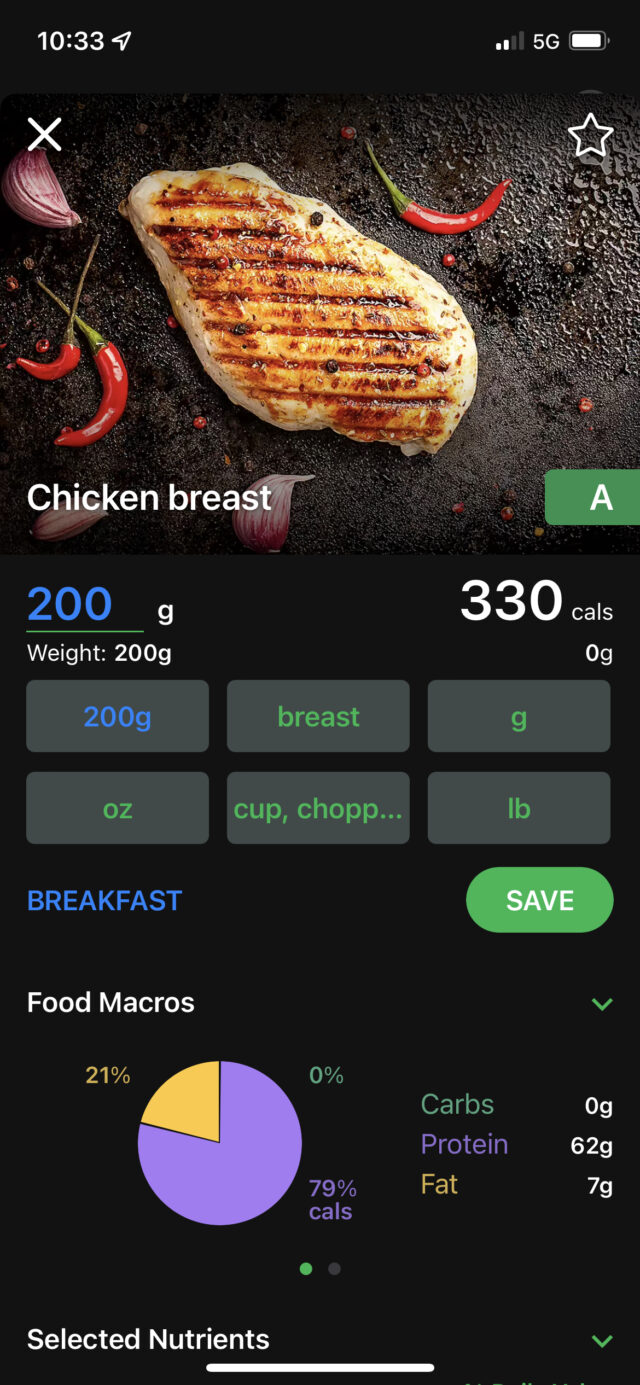
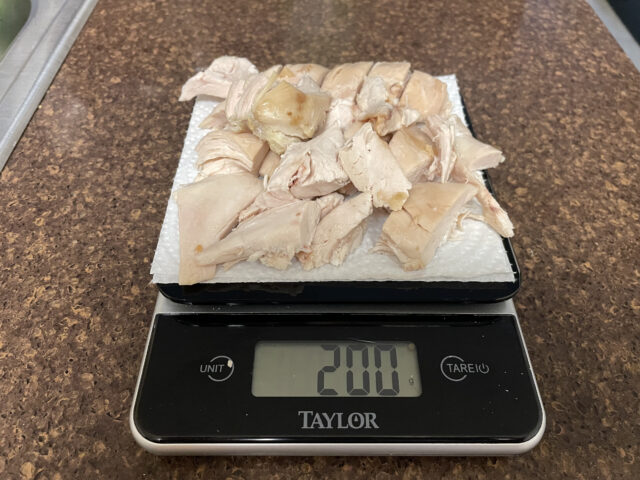
What does 5 oz of chicken look like?
5 oz of chicken is similar in weight to 160g of chicken as shown in the previous section. Spotting weight equivalencies like this can be helpful to you because nutrition labels can vary. Being able to better spot similarities between labels can help you save time and help you become more accurate in your food tracking.
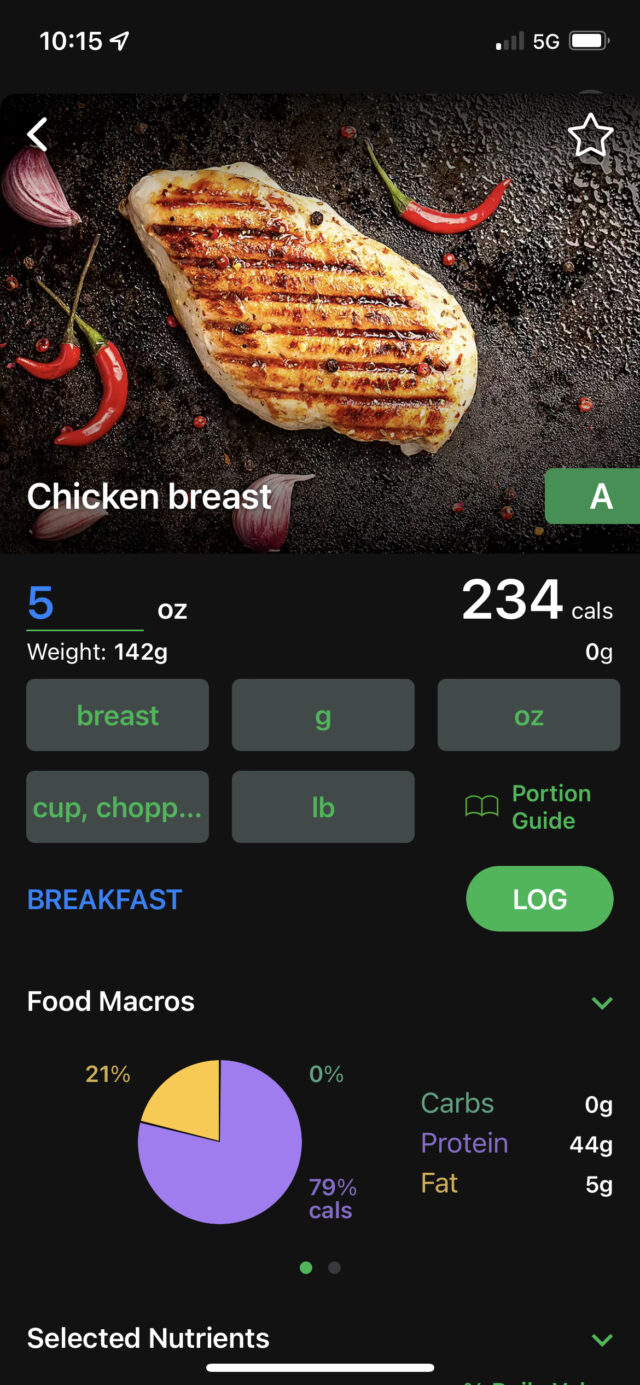
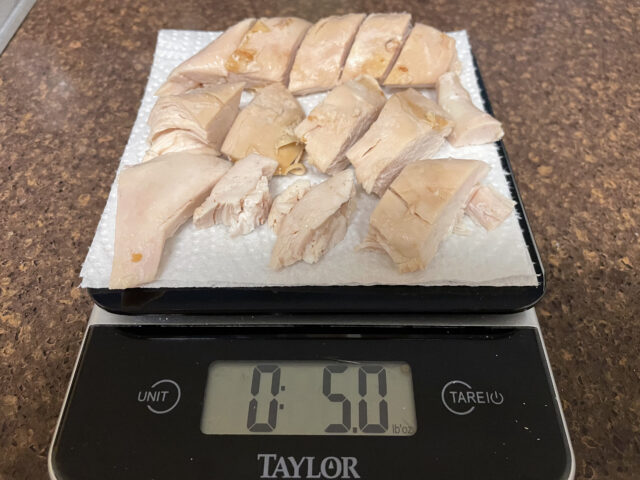
What does 200 grams of protein look like? / How To Eat 200 grams of protein a day
So far, we have seen what 50g and 100g of protein look like. Now we will be looking at what 200g of protein will look through the My Net Diary app.
It is important to note that we are just going to use protein-based sources and will be excluding foods that are significant sources of carbohydrate and fat. (Most protein sources are not 100% lean, so some fat will sneak in).
This is done to make it as easy as possible for you to better understand how food affects your body in a common sense way that will put you in control of how you look.
Consider these screenshots from the My Net Diary app as an example of how a 200g protein day can look for you:
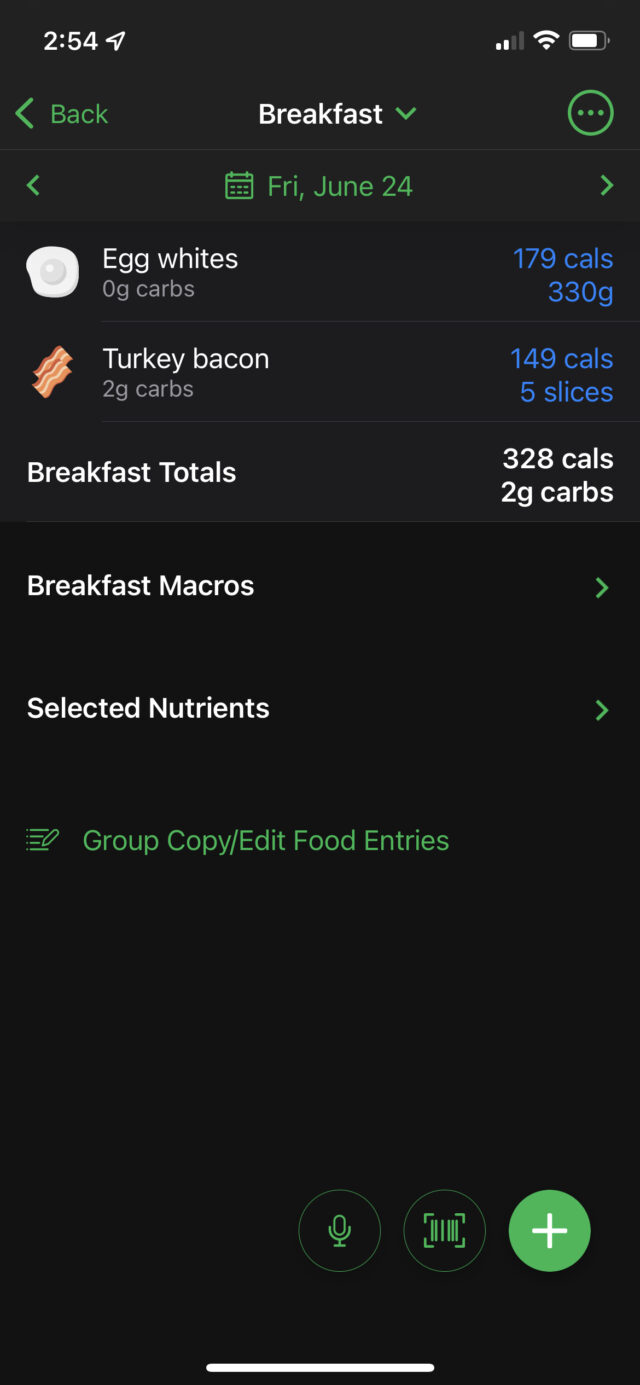
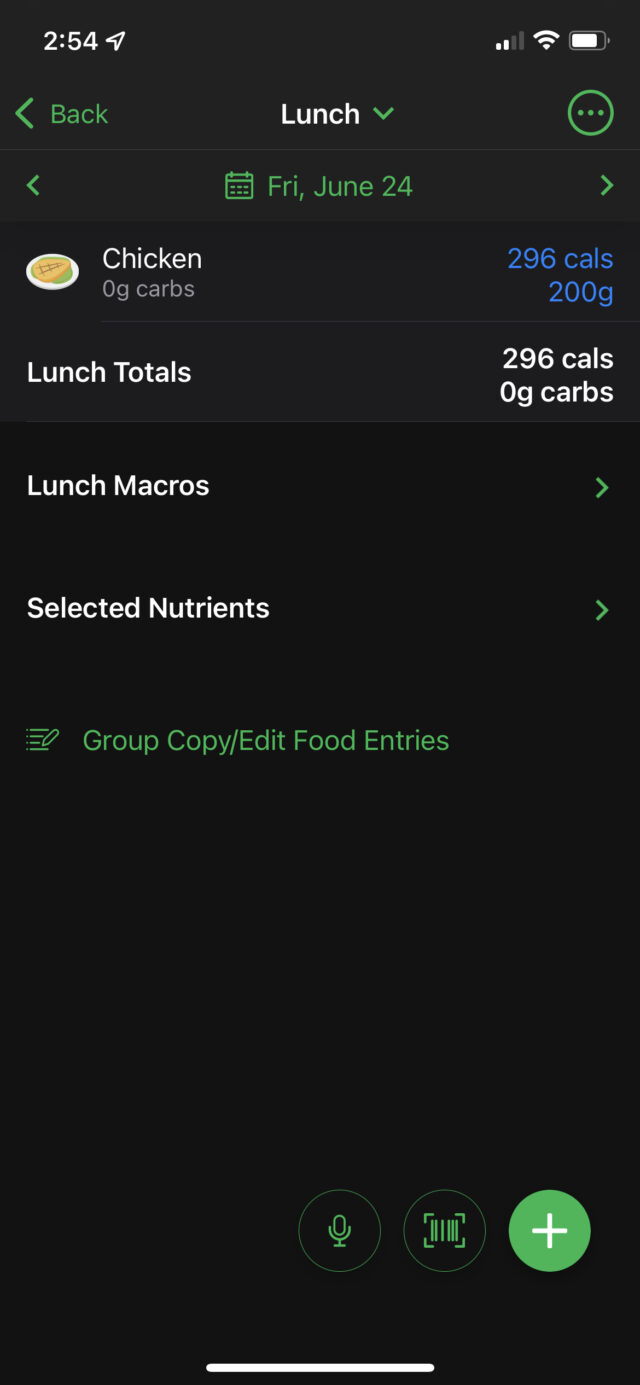
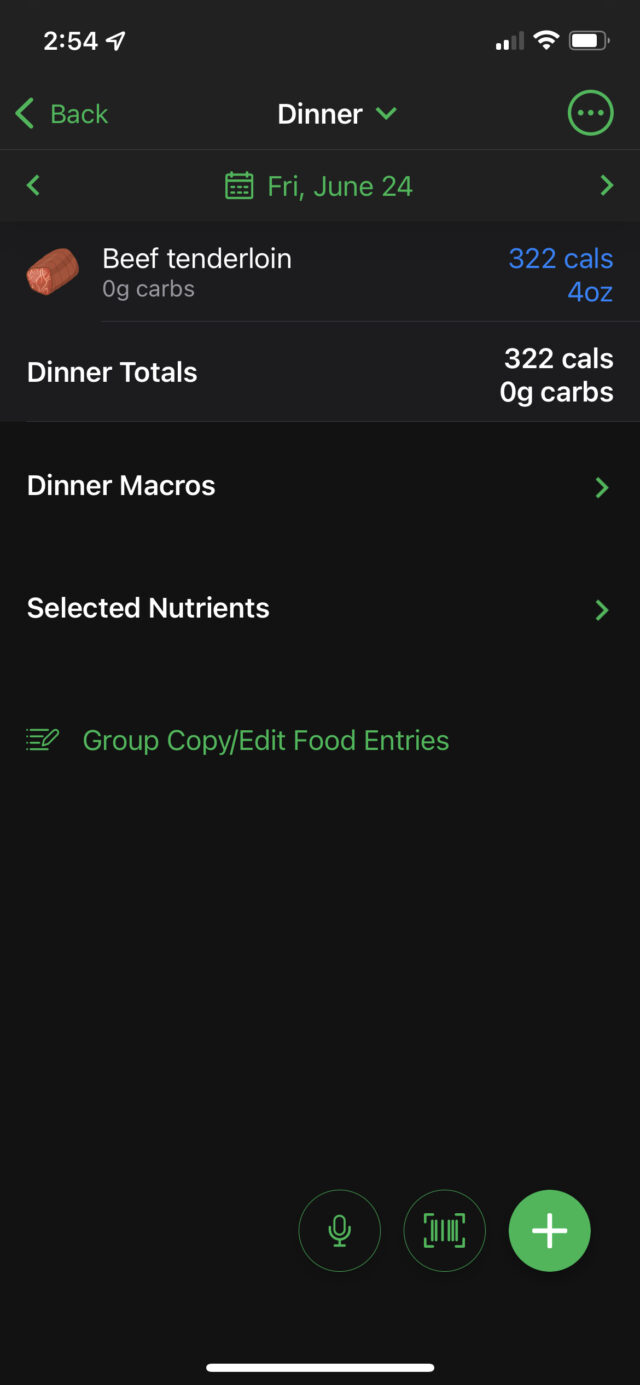
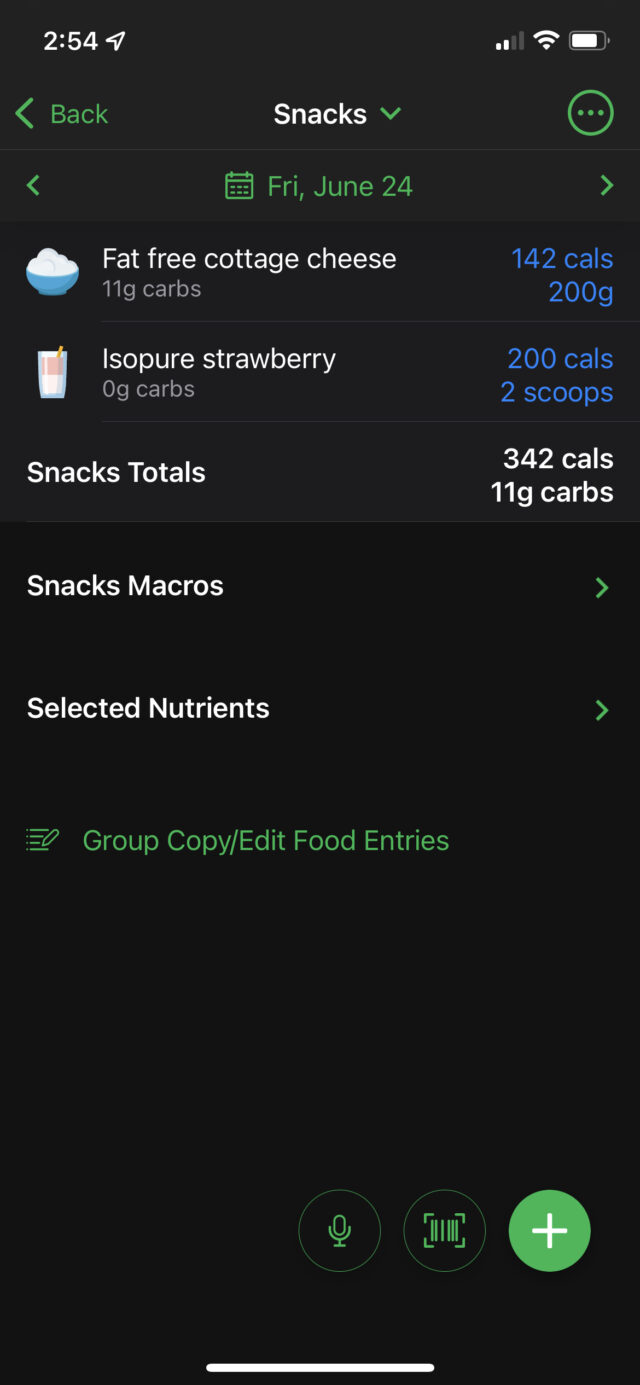
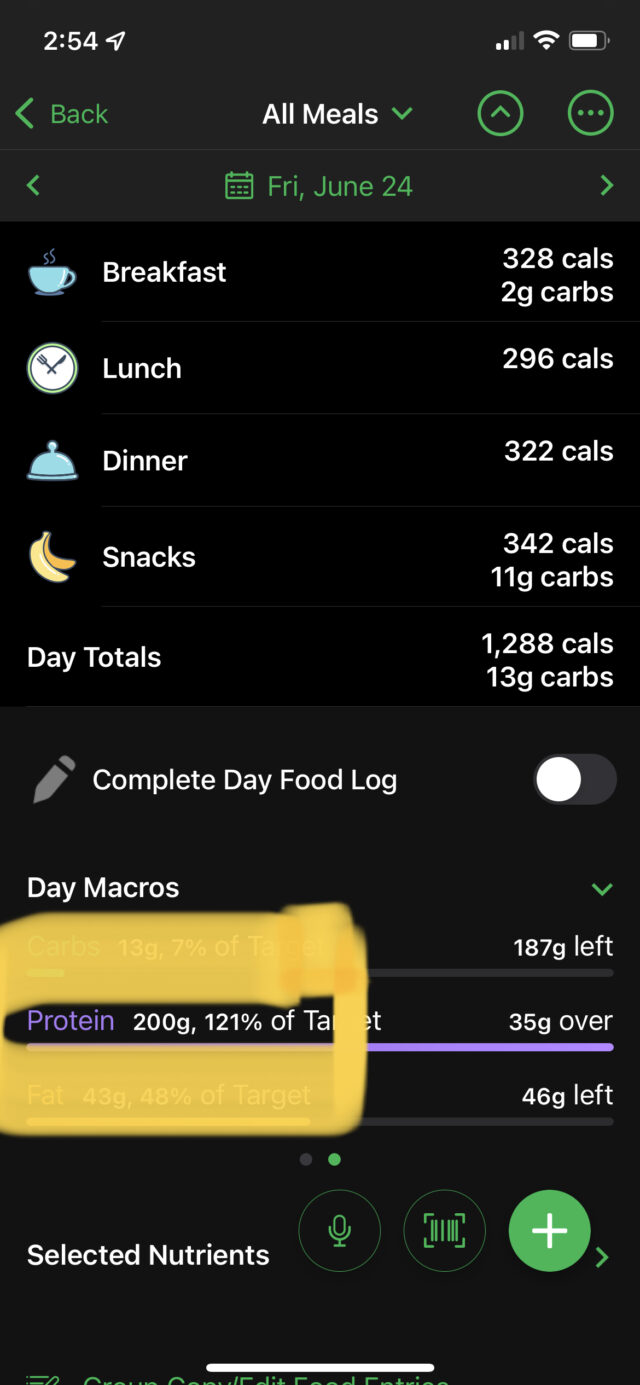
If any amount of protein is difficult for you to achieve -or any other macronutrient for that matter- try using the above screenshots as an example of how to fit it into your daily eating pattern. Just as above, structure your day using protein as your framework. Afterwards, you can fill in the rest of the macronutrients to meet your other requirements.
At Cornerstone Weight Loss we help you better understand how food affects your body in a common sense way that will put you in control of how you look. In order to get in touch with a professional who can help tailor your weight loss plan to you, click below, fill out the information, and a member of the Cornerstone Weight Loss team will reach out to you to get the results in weight loss you deserve.


